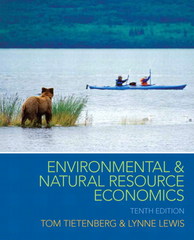Question
Please help 1. The Financial Reporting and Standards Council (FRSC) a. Is composed of a chairman and six (6) members. b. Has the authority to
Please help
1. The Financial Reporting and Standards Council (FRSC)
a. Is composed of a chairman and six (6) members.
b. Has the authority to establish the accounting
framework to be used by companies under its
jurisdiction.
c. Is the accredited professional organization of CPAs
by the PRC.
d. Establishes generally accepted accounting
principles in the Philippines.
2. Which statement is correct?
a. FINEX is the accredited professional organization of
CPAs by the PRC.
b. The Bangko Sentral ng Pilipinas is not represented
in the AASC.
c. The chairman of the FRSC should have been or
presently a senior practitioner in public
accountancy.
d. The Insurance Commission is not represented in
the FRSC.
3. The pronouncements of FRSC provide the highest
authoritative pronouncements on accounting
principles. The authority of these pronouncements
rests upon
a. The rules and regulations of the SEC
b. Its management and their internal accounting staff
c. Their general acceptability
d. The integrity of the Council
4. Due process for projects of FRSC normally includes the
following, except
a. Consideration of pronouncement of the IASB.
b. Formation of a task force, when deemed
necessary, to give advice to the FRSC.
c. Issuing for comment an exposure draft approved
by at least eight members of the Council;
comment period will be at least sixty days.
d. Approval of a standard or an interpretation by all
of the Council members.
5. The process of establishing financial accounting
standards
a. Is a democratic process in that a majority of
practicing accountants must agree with a standard
before it becomes implemented.
b. Is a legislative process based on rules promulgated
by government agencies.
c. Is based solely on economic analysis of the effects
each standard will have if it is implemented.
d. Is a social process which incorporates political
actions of various interested user groups as well as
professional research and logic.
6. The role of the PIC is principally to issue
implementation guidance on PFRSs.
Interpretations of PFRSs are intended to give
authoritative guidance on issues that are likely to
receive divergent or unacceptable treatment, in the
absence of such guidance.
a. True, True c. False, False
b. True, False d. False, True
7. Which statement is correct regarding Philippine
Financial Reporting Standards (PFRSs)?
a. PFRSs exclude PIC Q&As.
b. PFRSs are designed to apply to not-for-profit
activities in the private sector.
c. PFRSs apply from a date specified in the
document.
d. Standards approved by the FRSC include
paragraphs in bold type and plain type, the latter
having less authority.
8. Which statement is correct?
a. The Bureau of Internal Revenue is represented in
the AASC.
b. The Insurance Commission is represented in the
Philippine Interpretations Committee.
c. The chairman of the FRSC should have been or
presently a senior practitioner in public
accountancy.
d. Bicol is a PICPA Geographical Area.
9. Which of the following statements is/are true?
I. The IFRS Interpretations Committee is a forum
for the IASB to consult with the outside world.
II. The IFRS Foundation produces IFRSs. The IFRS
Foundation is overseen by the IASB.
III. One of the objectives of the IFRS Foundation is to
bring about convergence of national accounting
standards and IFRSs.
a. I and II only c. III only
b. I and III only d. None
10. Which of the following statements reflects one of the
benefits of adoption of IFRS standards by different
countries?
a. Earnings management is eliminated.
b. Volatility of earnings calculated using IFRS is zero.
c. Cost of capital is lower for firms.
d. There are no economic consequences when firms
switch to IFRS from existing GAAP.
11 La Union Company included the following items under
inventories:
Materials on hand P1,200,000
Materials in transit shipped FOB
shipping point
470,000
Materials in transit shipped FOB
destination
350,000
Advances for materials ordered 200,000
Goods in process 900,000
Finished goods in factory 3,000,000
Finished goods in company-owned
retail stores, including 50% profit
on cost
750,000
Finished goods in hands of consignees
including 40% profit on sales
400,000
Goods held on consignment, at sales
price, cost P150,000
300,000
Finished goods in transit to customers,
shipped FOB seller, at cost
250,000
Finished goods in transit to customers,
shipped FOB buyer, at cost
150,000
Unsalable finished goods, at cost 30,000
Office supplies 40,000
Advertising catalogs and shipping
boxes
150,000
Compute the amount to be presented as "Inventories"
under current assets.
a. P6,460,000 c. P6,560,000
b. P6,510,000 d. P6,610,000
Step by Step Solution
There are 3 Steps involved in it
Step: 1

Get Instant Access to Expert-Tailored Solutions
See step-by-step solutions with expert insights and AI powered tools for academic success
Step: 2

Step: 3

Ace Your Homework with AI
Get the answers you need in no time with our AI-driven, step-by-step assistance
Get Started


